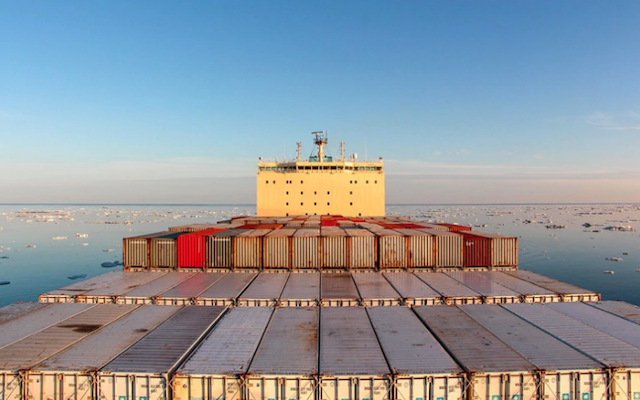Donald Trump’s proposed import tariffs would see the cost of shipping goods by ocean increase in a repeat of the market spike seen during his first term as U.S. President.
Trump defended his trade policy during last night’s presidential debate, which includes blanket tariffs of up to 20% on all imports and additional tariffs of 60% to 100% on goods from China.
However, data released by Xeneta — the privately held ocean freight rate intelligence platform — shows the last time Trump ramped up tariffs on China imports during the trade war in 2018, the ocean container shipping markets spiked more than 70%.
“Raising barriers to trade is almost always a negative move,” Peter Sand, Xeneta chief analyst, said. “We saw the cost of shipping goods by ocean spike dramatically when Trump introduced tariffs back in 2018 and his latest proposals will simply be a case of history repeating.”
Trump stated during the debate with Kamala Harris that his proposed import tariffs would not result in increased prices for consumers; however, Sand disagrees.
“When ocean container shipping markets increase, that cost gets passed down the line and ultimately it is the end-consumer who pays the price,” he said. “It could be through increased cost of goods on the shelves or a limited choice in the products available.”
Trump’s tariff proposals come at a time when global ocean supply chains are already under immense strain due to conflict in the Red Sea.
This has caused spot rates on the trade from the Far East to U.S. East Coast to increase 303% between Dec. 1, 2023, and July 1, 2024. Spot rates from the Far East to U.S. West Coast increased 389% in the same period.
“Shippers react to supply chain threats by rushing to import as many goods as possible as quickly as they can,” Sand said. “Frontloading of imports has contributed to the massive increases in freight rates following the outbreak of conflict in the Red Sea, and we will see the same behavior from shippers ahead of any new tariffs coming into force.
“Whether it is trade wars or conflict in the Red Sea, geo-political disruptions are toxic for ocean supply chains, and they are happening with a higher frequency than ever before," he added.
“Shippers and freight forwarders dislike uncertainty because it reduces their ability to manage supply chain risk," Sand said. "This is why people who work or operate within the maritime industry embrace global trade and do not want to see tariffs or other barriers introduced.”
[Xeneta is an ocean and air freight rate benchmarking and market analytics platform reporting on the shipping and logistics industry. Xeneta’s reporting and analytics platform is designed to provide liner-shipping stakeholders the data they need to understand current and historical market behavior — reporting live on market average and low/high movements for both short- and long-term contracts. Xeneta’s data is comprised of 450+ million contracted container and air freight rates and covers over 160,000 global ocean trade routes.]




